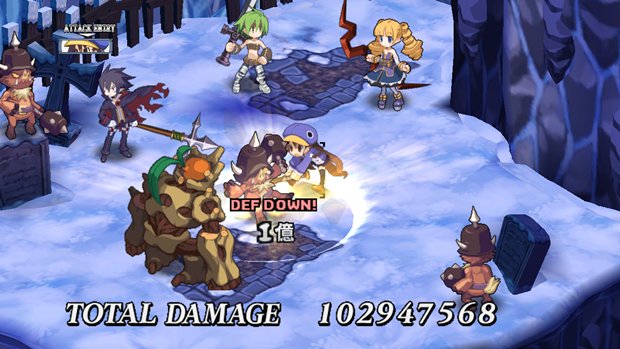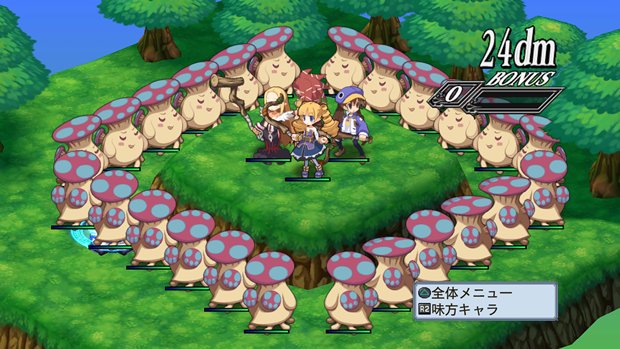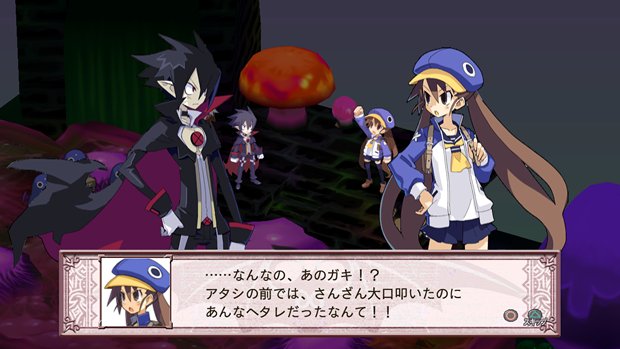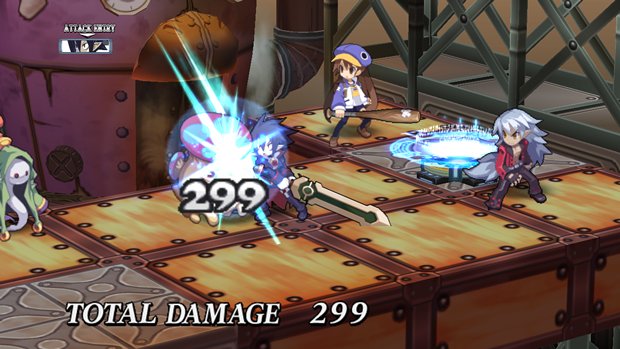Disgaea 4: An interview with Masa Yamamoto
We chat with the director and lead programmer of Disgaea 4 about the series and NIS's future
NIS America’s press event last week showed off the English language version of Disgaea 4 for the first time. This eagerly anticipated installment in the long-running, much-beloved series of strategy RPGs comes to Western shores with a new graphics engine, a fresh cast of adorable, dysfunctional characters (along with some returning faces), and a host of crazy new gameplay systems in tow. We had the opportunity for a brief interview with Disgaea 4 director and lead programmer, Masa Yamamoto, about the thought process behind the development of the game.
GamesRadar: So how long have you been working with the Disgaea series?
Masa Yamamoto: I’ve been involved since the beginning, but I’ve actually been at Nippon Ichi Software for much longer – about 10 years or so. My first project was La Pucelle, which you may know as having had a lot of influence on Disgaea’s systems.
GR: You’re both the director and the lead programmer on Disgaea 4. How does having the technical know-how to program the game at the code level influence the way you direct the game?
MY: It’s true that knowing how to influence the game on a code level is a huge advantage. If I come up with a new idea for the game, I can implement and test it out myself. If it works, great! If it doesn’t, I’ll take it back to the idea stage and mull it over a bit more, seeing if I can improve it.

GR: Were there any ideas generated in the process of creating Disgaea 4 that just didn’t work out for whatever reason?
MY: Hm… I can’t think of any off the top of my head. This sort of thing happens quite often, actually. I’ll come up with an idea, put it in, and find out it’s too boring, too complex, or simply not fun. Then I’ll have to take it out. It’s just part of the organic development process.
Sign up to the GamesRadar+ Newsletter
Weekly digests, tales from the communities you love, and more
GR: Since the first Disgaea, the games have steadily become more and more feature-laden. Is there ever a point where you say “enough is enough,” or do you want to pack as much in as possible to provide value to buyers and fans?
MY: I think there’s a balance we need to strive to achieve. Sometimes it’s not just adding, it’s replacing or expanding existing systems. Our focus is to cater to a wide group of players, both hardcore fans and people who’ve never touched Disgaea before.

GR: What does the staff at NIS thinks about the series’ reception in the US? It’s a very Japanese game in terms of humor and structure, with a feel similar to that of an anime series. Some Japanese companies tend to think this stuff just doesn’t fly at all here, but Disgaea has defied that common wisdom.
MY: When Disgaea 1 was localized and was a hit in the US, we were really surprised! We didn’t really intend to cater to an international crowd. It was a surprise and a joy to see just how much the international fans have come to love the series.
GR: One of the major selling points of Disgaea 4 is the game’s retooled graphics engine. The sprites have been redrawn in a resolution suitable for an HD display. Was this a challenge for the team?
MY: It definitely was a challenge! HD sprites actually use a lot more system resources than you might think. Making adjustments to compensate for that was difficult. There’s a lot more work that goes into making these characters than just taking original, drawn art assets and plopping them into the game, there’s a great deal of fine-tuning involved.
GR: Did longtime series artist Takehito Harada draw the individual sprites himself?
MY: A lot of the major animation poses were drawn by him, but there’s also a great deal that were done by our very talented crew of in-betweeners using the character design specifications he developed.

GR: Disgaea is easily Nippon Ichi’s most visible and valuable franchise. Some fans of the company are a bit worried that NIS doesn’t have too many other major franchises to fall back on, however. Does NIS have a plan to develop other potential franchises in the future?
MY: As a company, we do know that we need to have more than one “pillar” IP to support ourselves. We’re definitely trying new avenues with recent stuff like ZHP, and spreading our wings with a few new ideas still cooking. I may be back in the future to present some of these ideas, so please look forward to it. *laughs*
GR: In regards to Nippon Ichi itself, it’s kind of in a strange location in Japan – way out in the countryside of Gifu. It’s not exactly the hotbed of gaming- and otaku-oriented activity that US fans think of when they imagine Japan. Are there any challenges to creating games in a rural location like that?
MY: It actually hasn’t affected us too much. We still get job applicants from all over the country, from Hokkaido in the north to the Okinawan islands in the far south. There are definitely advantages and disadvantages to the location, though. One of the big advantages is the lack of distraction in the countryside! *laughs* We get to focus a lot more on work that way. A big disadvantage, though, is that when we need to interact with people from other companies… well, not many people want to come to Gifu. *laughs* So we need to travel to the other locations in Japan for all the important business matters.
GR: You mentioned projects on the NGP in today’s presentation. Will that be the primary platform for NIS going forward, or can we continue to expect home console titles as well?
MY: I can’t really say myself just yet, since that’s a decision made by the company as a whole. As I see it, though, I don’t see us completely devoting ourselves to NGP – rather, we’ll work to balance the titles we issue across different platforms in order to have many different support systems.

GR: So we’ve seen the Disgaea characters start to invade other genres in the Prinny action game series. We're sure fans are wondering… when is that Disgaea overlord netherworld rumble fighting game going to be announced?
MY: *laughs* I don’t know. I think it’s going to have to be somebody else who does work on that…
May 17, 2011


